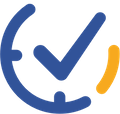Hey there, freelance rockstar! 🚀 Ready to level up your motivation and productivity? Let’s dive into some game-changing strategies that’ll help you thrive in the ever-evolving world of freelancing. Whether you’re a seasoned pro or just starting, these tips will help you navigate the ups and downs of the freelance lifestyle.
1. Flip the Script: From Limiting to Empowering Beliefs
We’ve all been there – those pesky self-doubts creeping in. But it’s time to kick those limiting beliefs to the curb and embrace your inner badass. Here’s how:
• Spot the saboteur: Notice thoughts like “I’m not good enough to charge premium rates” or “I’ll never land high-profile clients.”
• Reality check: Are these thoughts based on facts or just fear talking?
• Reframe and conquer: Transform “I can’t handle big projects” into “I’m resourceful and can tackle any challenge that comes my way.”
Pro Tip: Create a “Wins Journal” where you jot down your successes, no matter how small. When imposter syndrome strikes, flip through it for an instant confidence boost!

2. Set Goals That Light Your Fire
Forget boring, cookie-cutter goals. We’re talking about aspirations that make you jump out of bed in the morning! Let’s break it down:
Long-term vision (3-5 years):
• Build a six-figure freelance empire
• Launch a course teaching others your freelance superpowers
• Speak at a major industry conference
Short-term wins (next 3-6 months):
• Land 3 new dream clients
• Increase your rates by 20%
• Learn a new skill that adds value to your services (e.g., SEO for writers, animation for designers)
Make it real: Create a vision board (digital or physical) showcasing your goals. Place it where you’ll see it daily for constant inspiration.

3. Craft Your Productivity Paradise
Your workspace can make or break your focus. Here’s how to create an environment that screams “get things done”:
• Find your flow zone: Are you a coffee shop hustler, home office hermit, or co-working community member? Experiment to find your ideal setting.
• Tech it up: Invest in tools that boost your efficiency. Think noise-canceling headphones, a second monitor, or a standing desk converter.
• Minimize distractions: Use apps like Freedom or Forest to block time-wasting websites during work hours.
• Ergonomics matter: Your body will thank you for that ergonomic chair and proper desk setup.
Productivity hack: Try the “5-minute rule” – when you’re procrastinating, commit to working on the task for just 5 minutes. Often, you’ll find yourself in the groove and keep going!

4. Build Your Freelance Tribe
Freelancing can feel lonely, but it doesn’t have to be! Surround yourself with people who get it:
• Join online communities: Platforms like Reddit’s r/freelance or Facebook groups in your niche are goldmines for advice and support.
• Attend virtual events: Conferences, webinars, and workshops are great for learning and networking.
• Find an accountability buddy: Team up with another freelancer to check in on goals and celebrate wins together.
Networking tip: Don’t just connect – engage! Comment on posts, offer helpful advice and be genuinely interested in others’ journeys.
5. Embrace the Rollercoaster (and Be Kind to Yourself)
Let’s face it – freelancing isn’t always smooth sailing. Here’s how to weather the storms:
• Celebrate small wins: Land a new client? Finished a tough project? Treat yourself!
• Learn from setbacks: Instead of dwelling on mistakes, ask yourself, “What can I learn from this?”
• Practice self-care: Schedule regular “me time” for activities that recharge you (yoga, reading, gaming – whatever floats your boat).
• Mindfulness matters: Try apps like Headspace or Calm for quick meditation breaks during busy days.
Remember: Even the most successful freelancers have off days. It’s all part of the journey!

6. Level Up Your Skills (and Your Mindset)
The freelance world moves fast – stay ahead of the curve:
• Continuous learning: Set aside time each week for skill-building. Platforms like Skillshare, LinkedIn Learning, or Udemy are treasure troves of knowledge.
• Read widely: Mix industry blogs with books on psychology, business, and creativity for a well-rounded perspective.
• Experiment with new tools: Test drive the latest project management or invoicing software to streamline your workflow.
Growth mindset tip: Reframe challenges as opportunities to learn and grow. That tricky client? They’re teaching you valuable communication skills!
7. Master the Art of Time Management
Time is your most precious resource – use it wisely:
• Time-blocking: Dedicate specific hours to different tasks (e.g., 9-11 am for client work, 2-3 pm for admin tasks).
• The Pomodoro Technique: Work in focused 25-minute sprints, followed by 5-minute breaks.
• Batch similar tasks: Group all your emails, invoicing, or social media updates to boost efficiency.
• Learn to say no: It’s okay to turn down projects that don’t align with your goals or values.
Pro tip: Use tools like Toggl or RescueTime to track where your time goes. You might be surprised!
Freelancing is a journey, not a destination. Embrace the challenges, celebrate the victories, and keep pushing forward. Every obstacle you face is an opportunity to grow, and every success is a stepping stone to greater achievements. The freelance landscape may be ever-changing, but with determination, adaptability, and a growth mindset, you’re well-equipped to thrive. So take a deep breath, trust in your abilities, and forge ahead with confidence. You’ve got this! 💪




